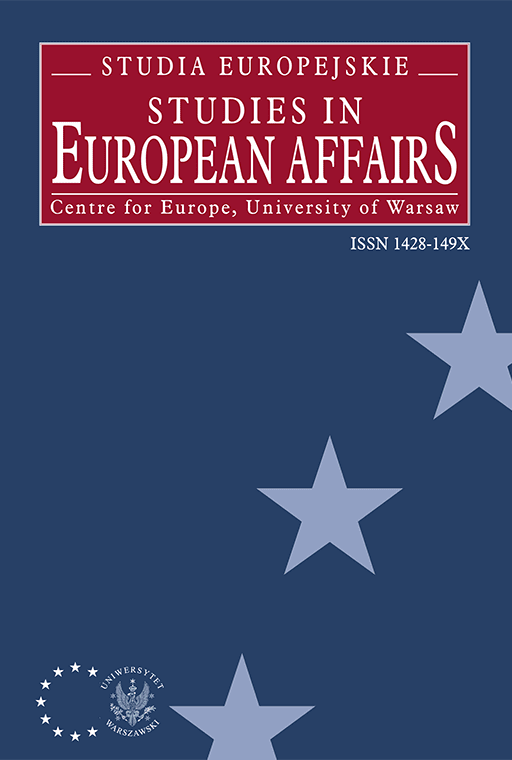
ISSUE: 3/2006
- Volume 39
- Number 3
- 2006
Subscribe NEWSLETTER
Studia Europejskie –
Studies in European Affairs
ISSN: 1428-149X
e-ISSN: 2719-3780
License
Articles published in the journal are under a Creative Commons Attribution – Non Commercial – No Derivatives 4.0 International License
Wpływ prawa wspólnotowego na stosowanie krajowego prawa karnego
The influence of Community law on the application of national criminal law
Abstract
Criminal law has traditionally been seen as an area beyond the scope of interest of Community law. This belief, however, is not exactly true. It is the principal aim of the article to present different forms of indirect relationships occurring among national criminal law and Community legal system. The analysis of jurisprudence of the European Court of Justice reveals an influence of norms adopted within the first pillar of the European Union upon application of both of particular Member States’ material and procedural criminal law. As revealed by judgments issued in response to preliminary questions asked by national criminal courts, this influence takes on various forms, leading to either ‘depenalisation’, ‘decriminalisation’ or different interpretation of national criminal rules. Depending on a particular type of norms involved, the scope of the Community law application may be different. For primary law to be applicable in criminal proceedings there must be a cross-border element in factual situation analysed. The so called ‘reversed discrimination’ can take place. For secondary law, a distinction has to be drawn between norms unifying national laws (in Regulations) and those which only harmonise them (in Directives). Regulations may directly influence the possibility of imposing criminal sanctions, for instance by defining illegal acts prohibited by national law. On the other hand, they can allow acts prohibited by national law, thus ‘decriminalising’ them. As for Directives, their influence may be manifested in cases of non-implementation or wrong implementation of their norms. Direct application of a Directive’s provisions or an interpretation of national norms in accordance with a Directive can neither lead to an increase nor imposition of criminal responsibility, so that a Directive can only be invoked in favour of an accused.
Language: Polish
Pages: 99-125
How to Cite:
Harvard
Kowalik-Bańczyk, K. (2006) "Wpływ prawa wspólnotowego na stosowanie krajowego prawa karnego". Studia Europejskie – Studies in European Affairs, 3/2006, pp. 99-125.